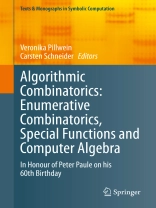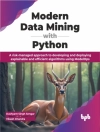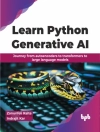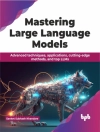The book is centered around the research areas of combinatorics, special functions, and computer algebra. What these research fields share is that many of their outstanding results do not only have applications in Mathematics, but also other disciplines, such as computer science, physics, chemistry, etc. A particular charm of these areas is how they interact and influence one another. For instance, combinatorial or special functions’ techniques have motivated the development of new symbolic algorithms. In particular, first proofs of challenging problems in combinatorics and special functions were derived by making essential use of computer algebra. This book addresses these interdisciplinary aspects. Algorithmic aspects are emphasized and the corresponding software packages for concrete problem solving are introduced.
Readers will range from graduate students, researchers to practitioners who are interested in solving concrete problems within mathematics and other research disciplines.
Tabella dei contenuti
When the search for solutions can be terminated.- Euler’s partition theorem and refinement without appeal to infinit.- Sequences in partitions, double q-series and the Mock Theta Function.- Refine q-trinomial coecients and two infinit hierarchies of q-series identities.- Large scale analytic calculations in quantum field theories.- An eigenvalue problem for the associated Askey–Wilson polynomials.- Context-free grammars and stable multivariate polynomials over Stirling permutations.- An interesting class of Hankel determinants.- A sequence of polynomials generated by a Kapteyn series of the second kind.- Comparative analysis of random generators.-Difference equation theory meets mathematical finance.- Evaluations as L-subsets.- Exact lower bounds for monochromatic Schur triples and generalizations.- Evaluation of binomial double sums involving absolute values.- On two subclasses of Motzkin paths and their relation to ternary trees.- A theorem to reduce certain modular form relations modulo primes.- Trying to solve a linear system for strict partitions in ‘closed form’.- Untying the Gordian Knot via experimental mathematics.












